
10 Brilliant Facts About Braille
Invented by Louis Braille in 1824, the tactile braille system has helped blind people read and write for nearly 200 years.
2023-08-01 00:26

How Many People Play Fortnite: June 2023
More people are playing Fortnite in June 2023 than they have in the last six months. Fortnite Chapter 4 Season 3 has brought more than 8 million new players to the Battle Royale.
2023-06-21 01:58

Microsoft signs power purchase deal with nuclear fusion company Helion
By Timothy Gardner WASHINGTON (Reuters) -Private U.S. nuclear fusion company Helion Energy will provide Microsoft with electricity in about five
2023-05-10 22:22

Stock Plays for October: 3 to Watch, According to J.P. Morgan
The bank has updated its Focus List, the compilation of its analysts' top ideas. These three shares could help a portfolio rebound.
2023-10-02 17:15

Madden 24 House Rules Rewards
Players can earn Madden 24 House Rules rewards like front page tokens and fantasy packs, but a glitch is preventing some from actually receiving the rewards.
2023-08-24 04:56

Canada to Reveal Plan for Emissions Cap on Oil and Gas This Fall
Prime Minister Justin Trudeau’s government plans to unveil its proposal to cap oil and gas emissions this fall,
2023-09-01 03:53
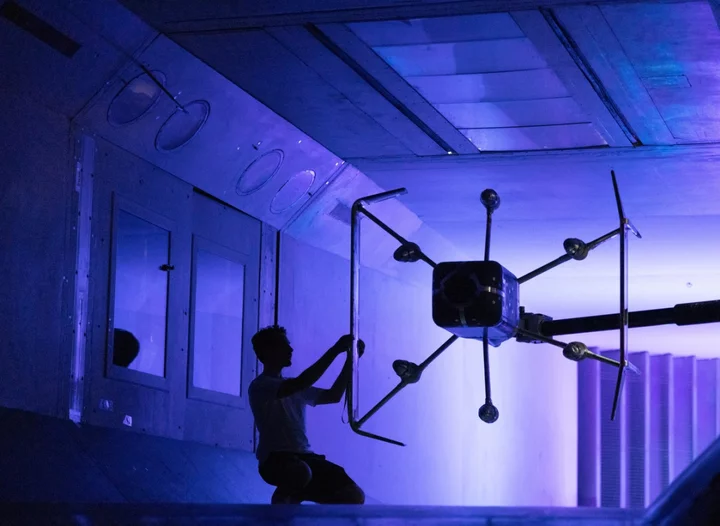
Amazon to start dropping packages into people’s gardens using drones in the UK
Amazon says it will soon start using drones to drop packages into people’s gardens from the air in the UK. Customers will be able to make orders and then have Amazon load their packages into autonomous aircraft at its fulfilment centres, the company said. Those drones will then fly to their house, and drop the package into the garden from the air, doing so within 60 minutes, it said. For customers, the drones will be offered alongside the usual set of delivery options, and for no extra price. The deliveries are intended to sit alongside traditional deliveries for when people want small items such as suncream or Fire Sticks quickly, Amazon said. The drones should be launched from new locations by the end of 2024, Amazon said as part of a host of announcements for its plans for Prime Air, its drone delivery arm. It also announced a new drone, which it calls the MK30, which it says is quieter and able to operate in more diverse conditions, such as light rain. Like the existing drones, those new ones are capable of carrying one, 5lb package in a dedicated storage container built into the drone. The package is then ejected out of that container when the drone arrives at the delivery point, which will generally be in customers’ gardens. Amazon stressed that it had looked to build the drones with safety features such as the ability to spot any obstacles, seemingly in an attempt to allay concerns about the danger they may pose, especially in suburban areas. The drone includes technology that will stop deliveries if it spots a pet in the drop-off area, for instance. The drones then fly themselves back to their base, and land vertically just as they take off, on the stands from which they are launched. They can then have their batteries swapped for the next launch. Amazon has already launched drone delivery in two locations in the US, in Texas and California. It says those projects have delivered “thousands” of packages in the last 12 months since those projects launched. But it will now launch a similar scheme in the UK, as well as in Italy and at another US location, by the end of 2024. It has not said exactly where those drones will fly from, but suggested that it will do so soon. The drones will be able to fly out to about 12 kilometres from their base, which will be located in one of the UK’s fulfilment centres. The location has been chosen and will be announced in a “couple of months”, he said. The company intends to expand the rollout after that, however, with Amazon’s head of Prime Air telling The Independent that there is a “mapped-out plan” to open more facilities over time. “This is not a market test,” he said. That is part of a plan to increase deliveries from thousands now to hundreds of millions by the end of the decade. “Our vision for a successful delivery solution for our customers, who really want their packages faster, is to be able to deliver 500 million packages by the end of the decade to customers in highly-populated, dense urban areas,” Mr Carbon said. Mr Carbon said that Amazon had chosen the UK for its next expansion in recognition of its aerospace heritage, as well as Amazon’s large footprint in the country and high demand from customers. He also said that Prime Air had a “great legacy” in the country, with the first ever successful Amazon drone delivery happening in Cambridge in 2016, though its operations have been scaled back in the country since. Showing off Amazon’s work on drones to reporters in Seattle, Mr Carbon said that much of the recent work had gone into safety features, and he said the new drones were certified in the same way as traditional planes. Amazon’s current drones are twice as safe as driving to a physical store to pick up an item, he said, and the upcoming MK30 is “two orders of magnitude” safer than making that journey. He suggested that part of the reason for expanding the drone network was to reduce the number of cars making deliveries in busy cities, as well as reducing the need for panicked and potentially unsafe journeys to shops when people need ultra-fast deliveries. But he also said that there was “absolutely” a demand for such quick deliveries from customers. It was clear that customers “want stuff fast”, he said. Amazon is “committed to taking technology, finding technology, developing technology” to make the experience of deliveries better in response, he said. Amazon has not said how much the drone project has cost in the more than a decade it has been in operation. It also would not say exactly how many drones are in its fleet, or give any information the economics of the flights, such as how many deliveries would be required for it to be profitable. But he did stress that the new rollout is “not about proving that you can deliver a package by drone” and is not a pilot or a test scheme, but a real rollout of the technology with a view to making it widespread. He did say however that it would “start slow” to increase the chances of success. The UK has its own regulatory framework, and Amazon said it had been working with regulators and the government to ensure the drones are ready to launch by the end of next year. But it also comes with its own challenges, such as dense urban areas, fewer gardens and less use of the grid system that can make US neighbourhoods easier to map. Mr Carbon said that Amazon had designed the drone and the other systems that support its journeys to be able to do so in a range of different environments. The drone “has been designed to cope with where our customers are”, he said. Amazon was unable to say what restrictions it expected regulators to put on the drones’ flights, such as weather they would be allowed to cross roads and whether someone would need to have sight of it at all times. It said that it was working on technologies to give the drones more capabilities – such as the ability to autonomously spot and avoid obstacles – with the hope that those would allow for less restrictions. UK regulator the Civil Aviation Authority suggested that Amazon’s work would lead to changes such as the ability for commercial flights to operate without being watched by their pilot. “Exploring the options of how drones can be safely and successfully incorporated into more of the UK’s airspace is key,” Frederic Laugere, head of innovation advisory services at the UK Civil Aviation Authority. “It is vital that projects such as this take place to feed into the overall knowledge and experiences that will soon enable drones to be operating beyond the line of sight of their pilot on a day-to-day basis, while also still allowing safe and equitable use of the air by other users.” The new locations are just one part of a plan to bring the deliveries to “as many Amazon customers as our technology can safely enable”, Amazon said in its announcement. It plans to “soon” launch from “new cities, countries, and continents”, it said. Read More Facebook has stopped working Facial recognition firm Clearview AI overturns UK data privacy fine New AI can tell if you have diabetes after just 10 seconds of listening to your voice Facebook has stopped working Facial recognition firm Clearview AI overturns UK data privacy fine New AI can tell if you have diabetes after just 10 seconds of listening to your voice
2023-10-19 01:15

Spend just $426 on this like-new Microsoft Surface Laptop 3
TL;DR: As of July 15, get this refurbished Microsoft Surface 3 laptop for just $425.99
2023-07-15 17:47
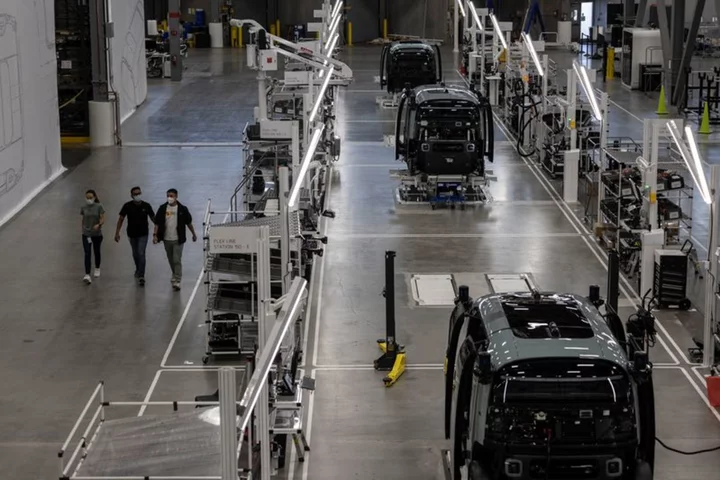
Zoox headcount grows as Amazon's self-driving unit expands testing in Vegas
By Abhirup Roy and Akash Sriram Amazon.com Inc's self-driving vehicle unit Zoox has grown its headcount by about
2023-06-28 00:28

EA FC 24 Pre-Order Bonuses: Standard and Ultimate Editions
EA FC 24 pre-order bonuses include 4,600 FC Points, an untradeable UCL/UWCL Hero, early access and more.
2023-07-25 00:19
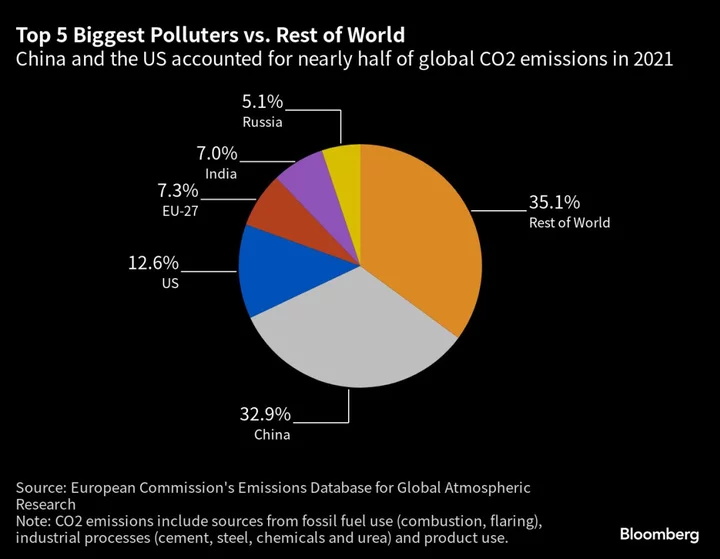
US and China Seek Climate Reset With Kerry’s Visit to Beijing
US Climate Envoy John Kerry arrives in China on Sunday for three full days of talks that will
2023-07-16 08:20
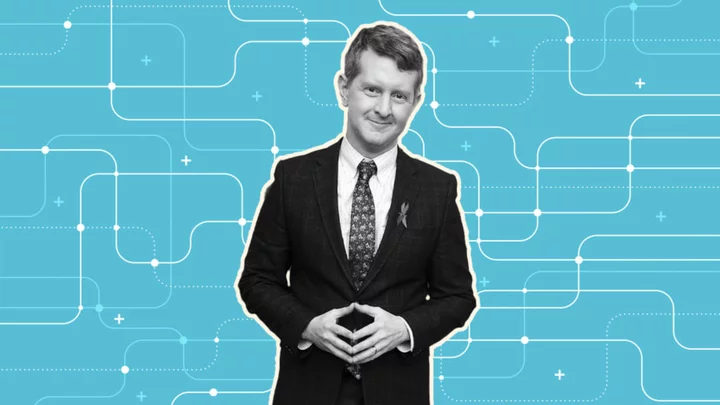
What's the Kennection? #66
All five answers to the questions below have something in common. Can you figure it out?
2023-06-12 22:48
You Might Like...

The Reddit blackout, explained: Why thousands of subreddits are protesting third-party app charges

Android Evolution: Google Tweaks Logo, Announces AI-Influenced Feature Drop

Ex-Apple employee reveals game-changing iPhone hacks everyone should know
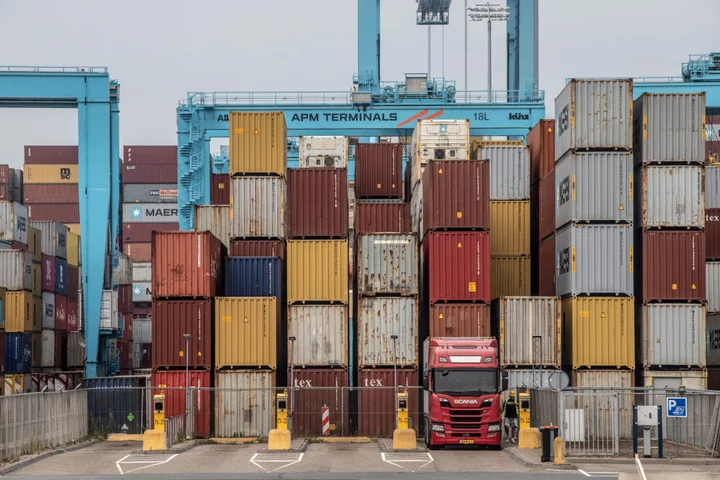
Pro-Russian Hackers Target Website of Europe’s Largest Port

Supreme Court avoids ruling on law shielding internet companies from being sued for what users post

Mouser Electronics Awarded Third Consecutive Year for Excellence in E-Commerce Distribution by Omron
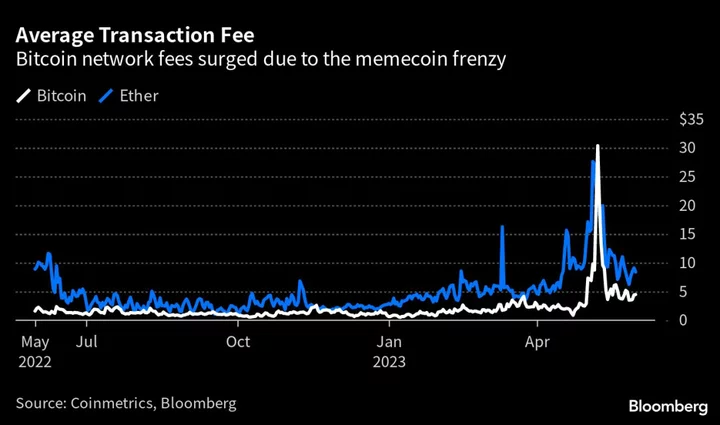
Bitcoin Coders Feud Over Whether to Crush $1 Billion Frenzy for Memecoins

'Apple GPT' is already being used by Apple employees, might be used for AppleCare
